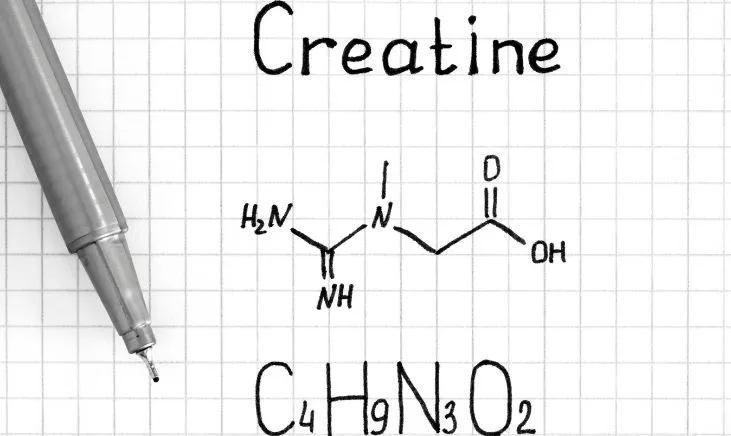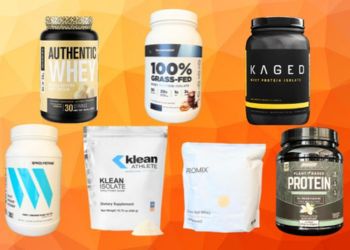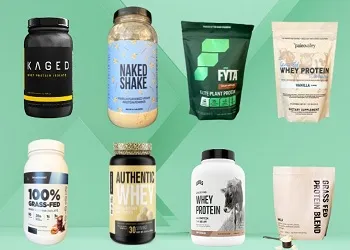Creatine and carnitine, two terms often used interchangeably in discussions about fitness and health, have different roles in the body.
In this article, we will delve into the main functions of creatine and carnitine, explore their benefits, and help you decide which pre-workout supplement aligns better with your fitness goals.
Creatine, a compound obtained from protein-rich foods, focuses on immediate ATP regeneration, enhancing strength, muscle mass, and overall exercise performance. It is a scientifically well-supported supplement. On the other hand, L-carnitine, derived from dietary sources like meat, plays a crucial role in transporting fatty acids for energy. While evidence on the effectiveness of supplemental carnitine in athletic performance is mixed, it has shown positive impacts on various health aspects.
Quick Summary
- Creatine, a naturally occurring compound obtained from protein-rich foods, focuses on immediate adenosine triphosphate (ATP) regeneration, enhancing strength, muscle mass, and overall exercise performance.
- On the other hand, L-carnitine, an amino acid derived from dietary sources, particularly meat, plays a crucial role in transporting fatty acids for energy.
- Research findings on the effectiveness of supplemental carnitine on athletic performance are mixed.
- L-carnitine has been shown in individuals with peripheral artery disease (PAD) to help alleviate intermittent claudication (leg pain during exercise) and enhance exercise capacity.
- A small beneficial effect on weight loss (approximately 1 kg) was reported with L-carnitine, acetyl-L-carnitine, or propionyl-L-carnitine supplementation.
Table of Contents
The Main Function of Creatine is to Regenerate ATP
Creatine, which comes from the Greek word “kreas” meaning “meat”, is a naturally occurring compound found in our muscles, primarily obtained through dietary sources like meat and fish.
Studies have shown that creatine supplements can enhance strength, help increase muscle mass, and improve exercise performance.
Our bodies naturally produce creatine in the liver, kidneys, and pancreas, combining the amino acids arginine, glycine, and methionine.
Once synthesized, creatine is transported to our muscle cells, where it’s stored as phosphocreatine and used as a readily available energy source during intense physical activities.
When you supplement with creatine, particularly creatine monohydrate, phosphocreatine stores will increase. This stored form of energy in the cells will produce more ATP, the body’s energy currency. The more ATP the better your body will perform during exercise. This will then contribute to energy production for high-intensity exercise or heavy lifting.
It’s not a quick-acting substance that produces immediate results, but rather a supplement that supports long-term physical performance and muscle growth.
If you are interested in finding out what the best creatine supplements are on Amazon, we have a blog post covering this.

What About Carnitine?
On the other hand, carnitine, specifically L-carnitine, is another supplement that has gained popularity in the fitness community. It is an amino acid produced in the body from lysine and methionine.
L-carnitine is an amino acid that is also found in dietary sources, primarily in meat products and can be taken as a dietary supplement.
Evidence suggests that it plays a crucial role in transporting long-chain fatty acids into the mitochondria, where they are oxidized to generate energy.
Most L-carnitine gets stored in your muscles along with some amounts in your liver, heart, blood, and kidneys.
L-carnitine is essential for mitochondrial processes, fatty acid metabolism, and ATP production. It also plays a crucial role in cellular detoxification, ketogenesis, glucogenesis, and cell membrane stabilization. In simpler terms, it plays a key role in disease and healthy ageing.
Some recent research showed that carnitine’s different forms may be used for various conditions such as brain and heart disease.
However, research findings on the effectiveness of supplemental carnitine on athletic performance are mixed. More research is needed.

Carnitine and Health
Various studies have been conducted on L-carnitine supplementation and its derivatives, such as propionyl-L-carnitine and acetyl-L-carnitine. Let’s explore some of the key findings.
Peripheral Artery Disease
In individuals with PAD, L-carnitine and propionyl-L-carnitine can help alleviate intermittent claudication (leg pain during exercise) and enhance exercise capacity.
Exercise-Related Benefits
L-carnitine supplementation doesn’t seem to significantly improve exercise capacity or performance in healthy individuals.
However, it may aid in reducing exercise-induced muscle soreness and damage, especially after resistance exercise.
Fertility Support
L-carnitine and acetyl-L-carnitine may improve sperm quality in males dealing with infertility.
For women with polycystic ovary syndrome, L-carnitine might enhance ovulation and increase pregnancy rates. More research is needed in the area of carnitine’s effect on fertility.
Liver Health
L-carnitine and acetyl-L-carnitine supplementation can reduce liver enzymes in individuals with NAFLD, indicating potential benefits for liver health.
L-carnitine shows minor positive effects on various aspects of metabolic syndrome, including improved blood pressure, blood glucose levels, blood lipids (triglycerides, total cholesterol, LDL-c, and HDL), and markers of oxidative stress and chronic inflammation.
Weight Loss
Some meta-analyses suggest a small beneficial effect on weight loss (approximately 1 kg) with L-carnitine, acetyl-L-carnitine, or propionyl-L-carnitine supplementation. There is minimal evidence that L-carnitine helps with weight loss or acts as a fat burner.
High-quality studies are necessary to understand whether L-carnitine or its derivatives can help you lose weight or improve other aspects of metabolic syndrome, especially considering the inclusion of weight loss drugs or lifestyle interventions in existing studies.

The Bottom Line
Creatine and carnitine are often used interchangeably, but they serve distinct roles in the body.
Creatine, a compound obtained from protein-rich foods, focuses on immediate ATP regeneration, enhancing strength, muscle mass, and overall exercise performance. It is a scientifically well-supported supplement.
On the other hand, L-carnitine, derived from dietary sources like meat, plays a crucial role in transporting fatty acids for energy. While evidence on the effectiveness of supplemental carnitine in athletic performance is mixed, it has shown positive impacts on various health aspects, including alleviating leg pain in individuals with PAD, supporting liver health, and potentially aiding weight loss.
Both supplements have unique benefits, and understanding their functions can help individuals choose the right pre-workout supplement aligned with their fitness goals.
Frequently Asked Questions
Which is better: creatine or carnitine?
Creatine is well-supported by scientific research and is widely regarded as one of the most effective and safe supplements for improving strength, muscle mass, and overall exercise performance. It helps regenerate ATP, the body’s energy currency, especially during high-intensity activities. On the other hand, L-carnitine has a more varied range of effects and may be beneficial for certain conditions such as peripheral artery disease, liver health, and potentially fertility. However, its impact on athletic performance is less conclusive, with mixed research findings.
What is the dosage for carnitine?
The recommended daily dose of L-carnitine typically falls within the range of 500 to 2000 milligrams (mg). It is generally regarded as safe for human consumption up to the dosage of 2000 mg per day.
Does carnitine build muscle?
While carnitine itself may not directly build muscle, it can contribute to overall muscle health and preservation. L-carnitine’s role in fatty acid oxidation helps optimize energy utilization, potentially supporting endurance during workouts. Additionally, by promoting efficient energy metabolism, L-carnitine may indirectly aid in the preservation of lean muscle mass. However, for direct muscle-building effects, creatine is often considered more effective.
Is anything better than creatine?
Creatine is widely regarded as one of the most researched and effective supplements for enhancing strength, power, and exercise performance during short bursts of activity. While there are various supplements available on the market, each with its unique benefits, it’s challenging to definitively say if anything is “better” than creatine.














